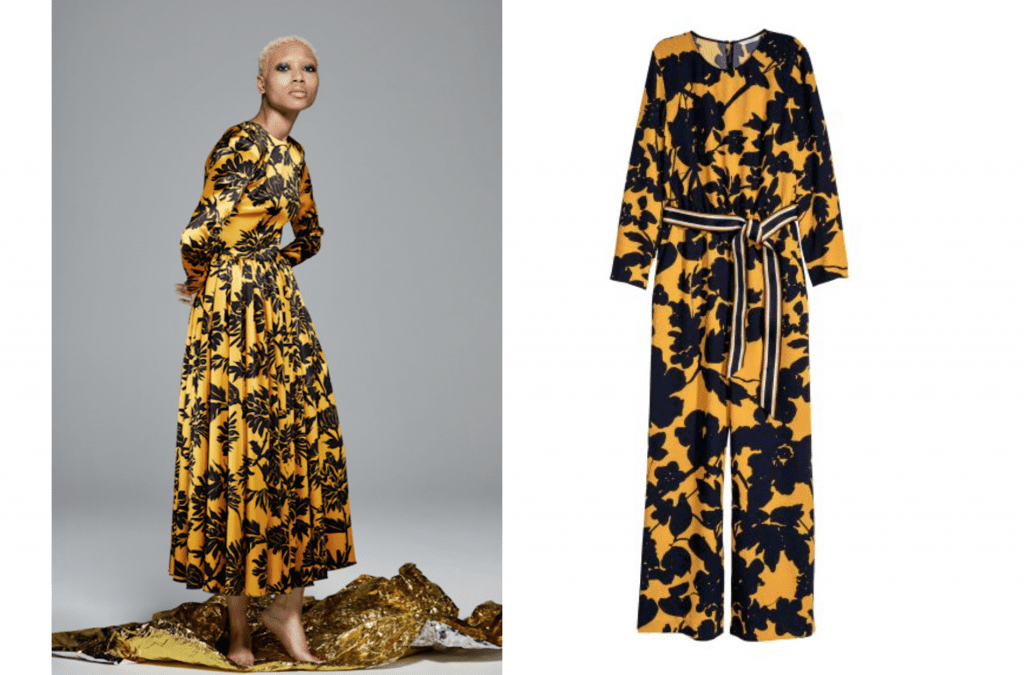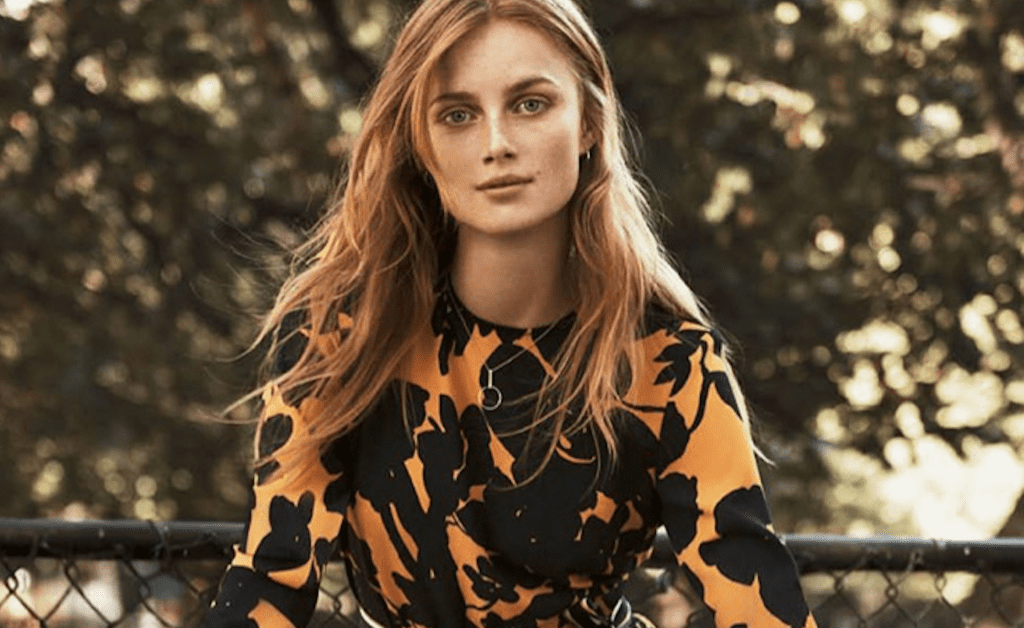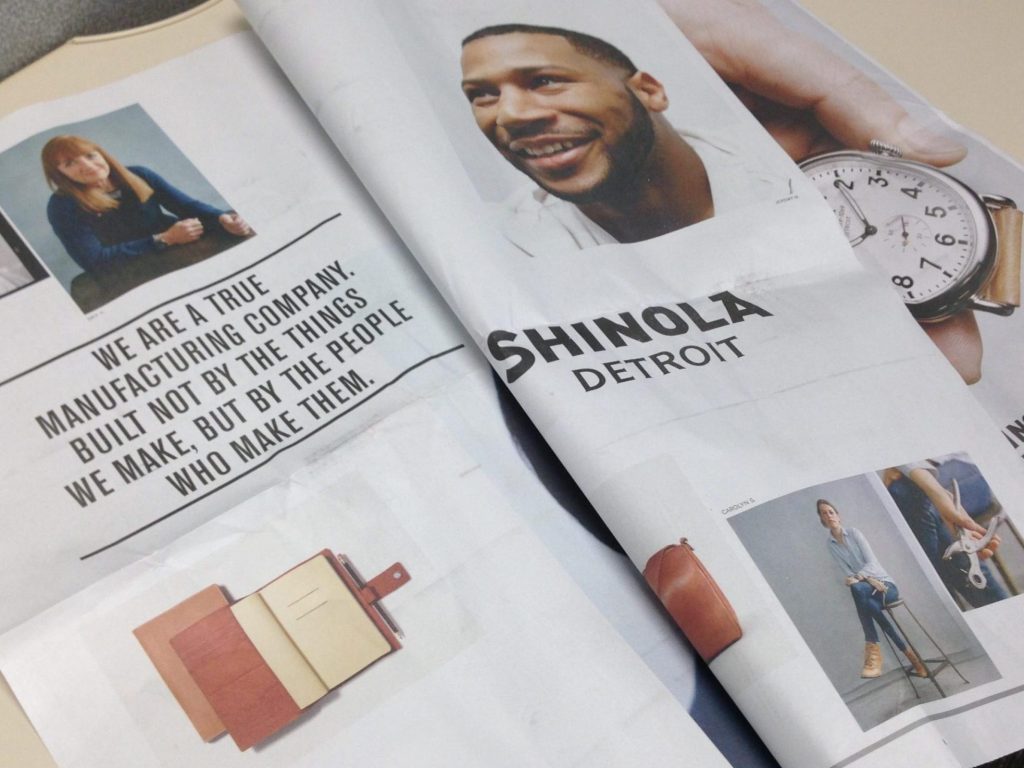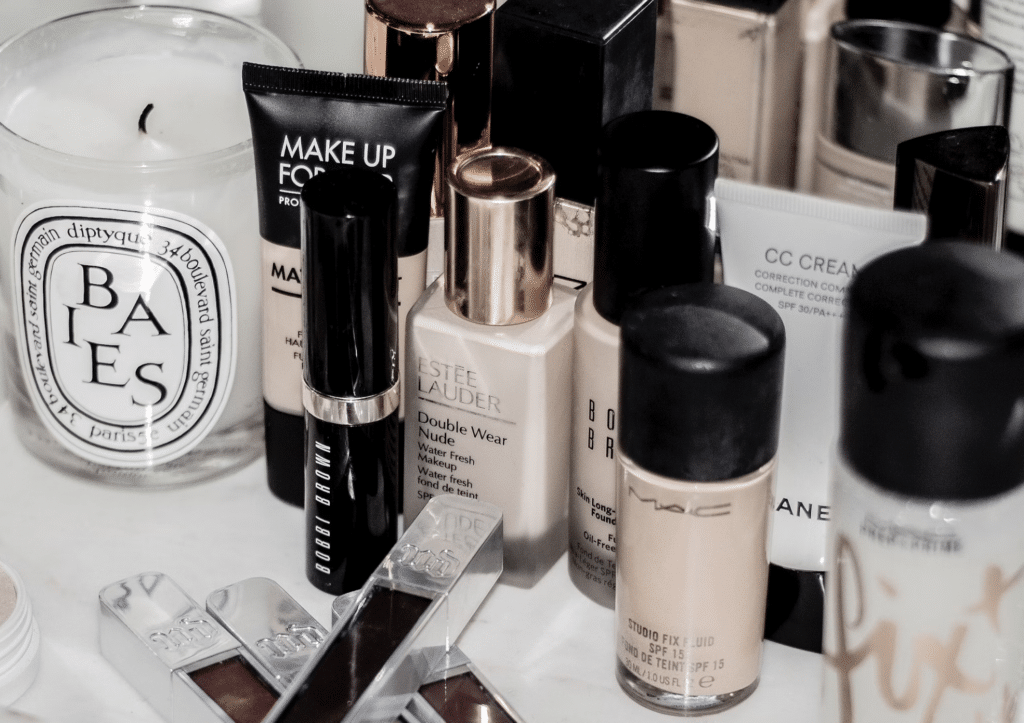A copyright infringement lawsuit pitting one of former First Lady Michelle Obama’s go-to designers against a fast fashion giant has landed on a New York federal court docket. In the complaint that she first filed in a federal court in Texas in June 2019 against H&M, Sophie Theallet claims that she created “a unique floral print fabric design and color scheme” in 2016, enlisted celebrities to promote it, and before she had a chance to formally launch the collection for sale to the public, H&M stole the print for garments of its own and beat her to market.
According to Theallet’s suit, in February 2018, she learned from Marka Klonlari-Copycats, an Instagram account dedicated to calling out fashion copycats, that H&M had begun selling jumpsuits and tunics bearing a marigold and black floral print that is “a clear copy of both the textile and the overall look of [her own copyright-protected] print.” More than merely copying the print, itself, which she describes as a “floral print fabric design and color scheme (black floral print silhouette on yellow-gold fabric),” Theallet argues in her suit that H&M hijacked the overall “look and feel – e.g., flowing dresses and a loungey jumpsuit” – of her garments by way of its allegedly infringing wares.
In addition to detailing the “substantial similarity” between her original design and H&M’s lookalike wares, Theallet points out how – exactly – H&M may have come upon her print, which is a critical element in the copyright infringement inquiry because as well as showing that the two parties’ designs are similar, in order to successfully make a case for infringement, it must be established that the defendant had “access” to the plaintiff’s original design.
Here, Theallet, whose case was recently transferred from a federal court in Houston, Texas to the U.S. District Court for the Southern District of New York, claims that instances of access are widespread, as her brand enlisted a handful of celebrities to help promote the collection before it was offered up for sale. “For emerging designers, such as Ms. Theallet,” the designer asserts in her complaint, “it is understood in the fashion industry that dressing celebrities and social media “influencers” is the most effective form of marketing available.” So, in 2017, Theallet’s brand “took steps to promote the collection [of garments bearing the print at issue], including by providing sample garments to be worn by celebrity clients,” such as Gabrielle Union, Greta Gerwig, and Jane Fonda.
Most famously, though, supermodel Kendall Jenner wore a jumpsuit bearing Theallet’s print during the Cannes Film Festival in May 2017. According to Theallet, Jenner posted a photo of herself in the jumpsuit – alongside “fellow supermodels Joan Smalls, Hailey Bieber and Bella Hadid” – on her heavily-followed Instagram account. Around the same time, Jenner posted another photo of herself in the jumpsuit on her Snapchat account, prompting “several blogs that follow the Kardashian-Jenner family’s sartorial choices” to pick up the image and run it on their own sites, “expressly identifying the jumpsuit as being part of [Sophie Theallet’s] collection.”
Given that H&M follows Jenner on social media and has been closely tied to the 24-year old model and reality television star since enlisting her to act as “a spokesmodel for H&M and [serve as] the face of H&M’s collaborations with high-end design houses Balmain and Giambattista Valli,” there is a likelihood that the Swedish fast fashion giant had access to Jenner’s imagery – and thus, to Theallet’s print as a result, the designer asserts.

With the foregoing in mind, Theallet claims that by “producing, distributing, advertising, and offering for sale … identical or nearly identical reproductions” of her print, H&M has engaged in “willful, intentional and malicious” copyright infringement, thereby, damaging her brand and “obtaining direct and indirect profits [it] otherwise would not have realized but for their infringement of [the print].”
Aside from asserting copyright infringement claims, Theallet says that H&M is also on the hook for trade dress infringement since the trade dress at issue – namely, “flowing dresses and a loungey jumpsuit with each piece incorporating the unique [print] design and color scheme (black floral print silhouette on yellow-gold fabric)” – is “visually distinctive and unique and instantly serves to identify [Sophie Theallet] as the source of this fashion design.”
According to Theallet’s complaint, as a result of her brand’s promotional activities, the print “has achieved widespread acceptance and recognition among the consuming public and the fashion industry in the United States and internationally,” which have come to “identify [the Theallet brand] or Ms. Theallet as the source of fashion garments featuring the [design].” In short: the “consuming public” links the design to a single source, which makes the “non-functional” and “visually distinctive” trade dress “entitled protection under both federal and common law.”
Theallet argues that such similarities are likely to cause confusion among consumers as to the source of H&M’s printed garments, and that chance of confusion is heightened – and the “theft of [Theallet’s] intellectual property is [made] particularly egregious” – by the fact that H&M has a well-established pattern of partnering with high fashion brands. Given “the parallels to its authorized collaborations with established designers, such as Balmain and Giambattista Valli,” and in light of Jenner’s connection to both H&M and Theallet (by virtue of wearing her pantsuit at Cannes), Theallet claims that “when [H&M] rolled out its own confusingly similar pieces ahead of [Theallet’s] launch, a public eager to dress like Kendall Jenner could be forgiven for assuming that [Theallet’s] had collaborated with H&M on the copycat items.”
“The crucial difference” here, per Theallet, is that unlike in the cases of Balmain and Giambattista Valli, for instance, “rather than collaborate with [Theallet] or legally license the intellectual property [at issue], H&M stole the designs and the publicity that went into them, racing [Theallet] to the market with its ‘fast fashion’ copies and siphoning the value of [Theallet’s] publicity and proprietary designs.”
Theallet goes on to assert that H&M’s use of her trade dress without her authorization “furthers their willful, deliberate, and bad faith scheme to trade upon the extensive consumer goodwill and recognition [Theallet] has have established in the trade dress” at issue.
The designer, who worked under late design great Azzedine Alaia before launching her eponymous label in early 2007, is seeking injunctive relief and monetary damages, while H&M has since denied the bulk of Theallet’s claims and set forth 31 different defenses, including, that Theallet has allegedly engaged in “fraud or deception in the copyright registration process” and that “the purported copyright that [Theallet] asserts in this action is invalid, void, or unenforceable,” among other things.
UPDATED (October 2, 2020): According to an order from the court, “The court-appointed mediator reported that this case has settled” on October 1, 2020. “Accordingly, it is hereby ORDERED that this action be conditionally discontinued without prejudice and without costs; provided, however, that within thirty (30) days of the date of this Order, the parties may submit to the Court their own Stipulation of Settlement and Dismissal. Otherwise, within such time Plaintiff may apply by letter for restoration of the action to the active calendar of this Court in the event that the settlement is not consummated”
*The case is Sophie Theallet, et al. v. H&M Hennes and Mauritz, L.P., et al, 1:20-cv-02212 (SDNY).













